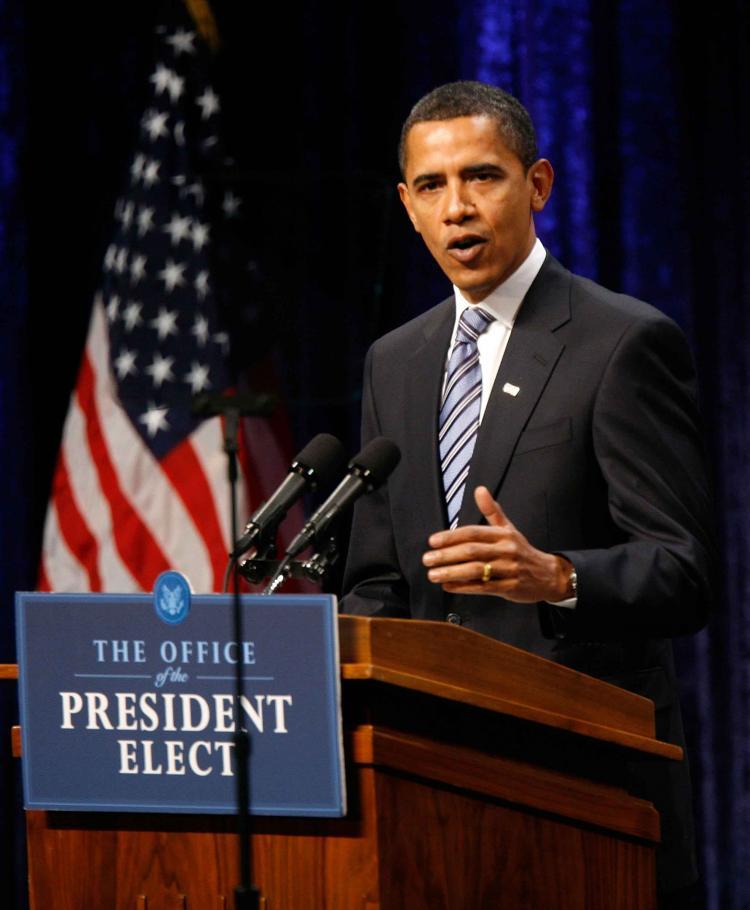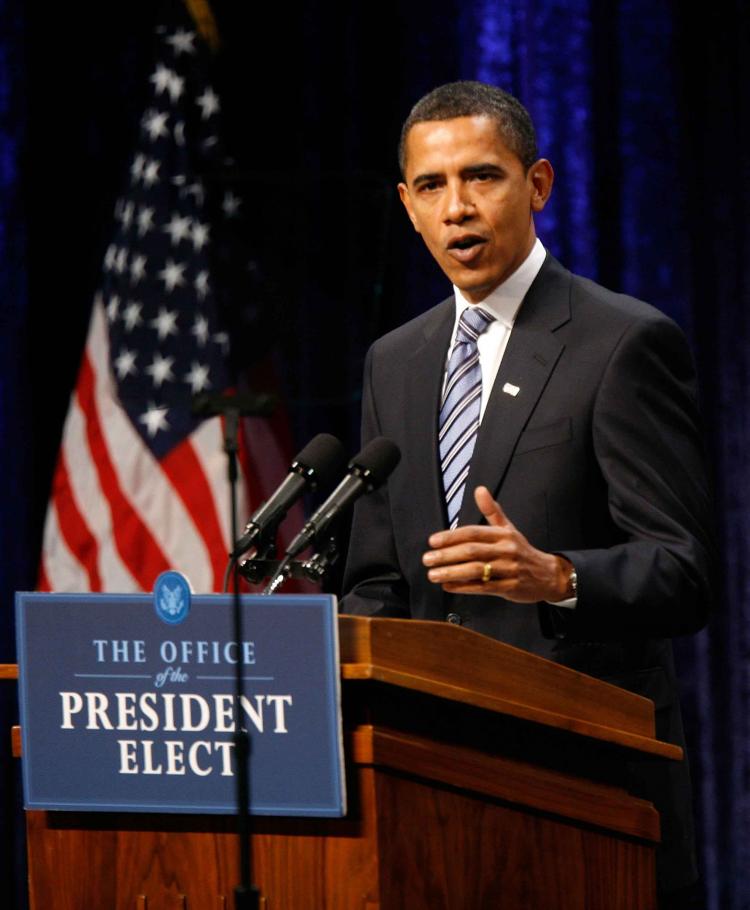WASHINGTON, DC—In a major address to build popular support for his massive stimulus package that would cost at least $775 billion, President-elect Barack Obama said that Americans must “end the culture of ‘anything goes.’”
The address given at George Mason University in Fairfax County, Virginia on Thursday just outside of Washington, D.C., had many elements of a motivational speech.
“We have arrived at this point due to an era of profound irresponsibility that stretched from corporate board rooms to the halls of power in Washington, D.C.,” said Obama.
President-elect Obama sees the economic situation worsening every week—“A bad situation, it could become dramatically worse” —and said that unemployment could reach double-digits. He urged Congress to work nights and weekends, if necessary, in a bipartisan fashion with his economic team, to forge in the next couple of weeks a “Recovery and Re-Investment Plan” that will “jump start job creation and long-term growth.”
“I don’t believe it is too late to change course, but it will be if we don’t take dramatic action as soon as possible. If nothing is done, the recession could last for years,” he warned.
Americans have tried “the wait-and-see approach,” said Obama, referring to the current Administration’s tepid efforts to fix the economy and regulate Wall Street, and implied it was not nearly enough to reverse the downward spiral.
The President-elect called for a new morality, and more working together to pull Americans out of economic troubles. The overall tone of business and politics leaves a lot to be desired, according to Obama.
“For years, too many Wall Street executives made imprudent and dangerous decisions, seeking profit with too little regard for risk, too little regulatory scrutiny, too little accountability. Banks made loans without concern whether borrowers could repay them, and some borrowers took advantage of cheap credit, to take on debt they could not afford,” said Obama.
Politicians also received severe rebukes from the President-elect: “Politicians spent taxpayer money without wisdom or discipline …The result has been a devastating loss of trust and confidence in our economy, our financial markets, and our government.”
The President-elect, who takes office on Jan. 20, said the emerging legislation could not be created with business-as-usual. While earmarks and pet projects have a place in supporting local economies, Obama made clear that these practices would be out of place with stimulus money. He urged legislators to put the needs of the country first. At the same time, he said that the projects he endorsed would not become “a slew of government programs but a foundation for economic growth.”
He defended the role of government intrusion on a scale not seen since the Great Depression—a position likely to be attacked by some conservative Republicans. Obama answered these critics: “Only government can break the cycle that is crippling our economy, where a lack of spending leads to lost jobs, which leads to less spending, where inability to lend and borrow stops growth and leads to even less credit.”
Obama said Americans need “to act boldly and now to reverse the cycle.”
He implied throughout the speech that he was not interested in ideological differences, but swore that he would be a pragmatist: “We will invest in what works.”
Obama Address Builds Support for Massive Stimulus Plan
In a major address to build popular support for his massive stimulus package that would cost at least...
|Updated:





